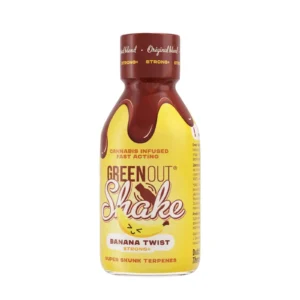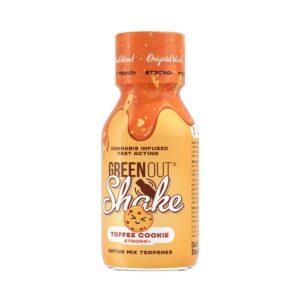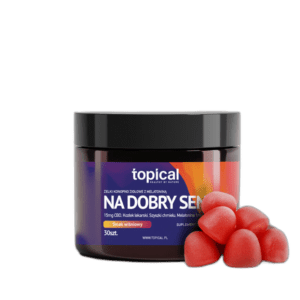Hemp (Cannabis sativa L.) is a plant with thousands of years of history that has been used for centuries for food, textiles and building materials. In the 20th century, their cultivation was curtailed due to their association with marijuana, but in 2025 hemp is experiencing a renaissance, especially in organic farming. With its low water requirements, ability to sequester carbon and improved soil health, hemp is seen as key to sustainability. In the face of global climate challenges and the need to diversify crops, hemp offers solutions that could revolutionize agriculture. This article examines the environmental and economic benefits of hemp, its uses, current trends in 2025, and the challenges farmers face.
Ecological benefits of hemp
Hemp is one of the most sustainable crops in organic agriculture, offering numerous environmental benefits:
- Carbon sequestration: Hemp is a carbon-negative plant, absorbing up to 10 tons of CO₂ per acre through photosynthesis, making it an effective tool in the fight against climate change (ScienceDaily).
- Water efficiency: Compared to cotton, hemp uses half as much water, which is crucial in drought-stricken regions (UNCTAD).
- Phytoremediation: Hemp's deep root system removes heavy metals and contaminants from the soil, promoting the regeneration of degraded land (ScienceDirect).
- Minimal use of pesticides: Hemp is naturally resistant to pests and weeds, eliminating the need for chemical pesticides, perfectly in line with the principles of organic farming (PMC).
- Improving soil health: Hemp enriches the soil with organic matter and increases the yield of the next crop in the rotation by 5-15% (X post).
These characteristics make hemp an ideal choice for organic farming, which emphasizes natural processes and minimizing environmental impact.
Economic benefits
Hemp offers significant economic benefits to organic farmers, especially in 2025, when demand for hemp products increases. According to the report Fortune Business Insights, the global industrial hemp market, valued at $9.47 billion in 2024, is expected to grow to $47.82 billion by 2032 at a CAGR of 22.7%. In organic agriculture, hemp brings higher margins than conventional crops such as corn and soybeans, which face oversupply and low prices (Heartland).
Hemp can be grown for seed (food, oil) and fiber (textiles, bioplastics), providing farmers with a dual source of income. For example, organic hemp seeds fetch prices two to three times higher than conventional grains, making them an attractive alternative. A Vermont study found that a small hemp sector could boost the local economy by $0.81 million and create 13 jobs, while a larger sector could generate $30 million and 439 jobs (ResearchGate).
Hemp applications in sustainable development
Hemp is versatile and its uses support the UN Sustainable Development Goals, such as Zero Hunger (SDG 2), Good Health and Well-being (SDG 3) and Climate Action (SDG 13):
- Food: Hemp seeds contain 30% of protein and an ideal ratio of omega-6 to omega-3 fatty acids (3:1), supporting heart health and preventing disease (PMC).
- Textiles: Hemp fibers are more durable than cotton, block 95% UV rays and have antibacterial properties (ScienceDirect).
- Building Materials: Hempcrete (hempcrete) offers excellent thermal insulation and mold resistance, with a thermal conductivity of 0.06-0.19 W m-¹ K-¹ (ScienceDirect).
- Bioplastics: Hemp can replace traditional plastics, offering biodegradable alternatives (X post).
- Bioenergy: Hemp biomass can be used to produce biofuels, although some processes may increase CO₂ emissions (ScienceDirect).
These uses make hemp a key component of the circular economy, where all parts of the plant are used, minimizing waste.
Case studies
- Vermont, USA: A 2005 study found that Vermont's hemp sector can significantly support the local economy, generating millions of dollars and hundreds of jobs through growing and processing the fiber (ResearchGate).
- Italy: A 2024 study in Tuscany analyzed the environmental impact of hemp cultivation, showing that organic methods reduce carbon footprint and improve soil quality (Frontiers).
- Pennsylvania, USA: The Rodale Institute has shown that hemp grown in a no-till system with cover crops such as vetch provides comparable yields without the need for synthetic fertilizers (Rodale Institute).
Challenges and the future
Despite the potential, hemp faces barriers:
- Regulations: In Poland, hemp cultivation requires permits, and vague regulations can deter farmers (European Commission).
- Infrastructure: The lack of processing plants limits the possibility of selling hemp products (Heartland).
- Market: Although demand is growing, prices for hemp products can be volatile, requiring the development of supply chains.
In 2025, research on the hemp microbiome opens up new opportunities to increase yields and fiber quality (ScienceDaily). EU support, such as funds for organic farming, can accelerate the development of the sector (European Commission).
Hemp in organic farming is the key to sustainability in 2025. Their ability to sequester carbon, improve soil health and minimize pesticide use makes them an ideal choice for organic farming. Economic advantages such as high margins and the growing popularity of hemp products further strengthen their position. As regulations become clearer and research drives innovation, hemp could revolutionize agriculture, supporting a healthier planet and economy.








